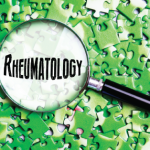Renée Bacher is a health and medical writer based in Louisiana.
Role-Based Approaches to Addressing Microaggressions
Racial microaggressions are short and subtle verbal, behavioral or environmental indignities. Intentional or unintentional, they convey hostile, derogatory or negative racial slights toward people of color. They convey the offending party’s implicit bias, often below their own conscious awareness.4
The three approaches below can help clinicians address microaggressions whether they are the source of the microaggression, a bystander or the recipient:5
Source-ASSIST Approach
You may commit a microaggression against Black or brown person without knowing it. When the incident is brought to your attention, you can:
- Acknowledge your bias—This is a step toward awareness and changing attitudes and behaviors.
- Seek feedback and information—If you’re confused about your error, ask for clarification.
- Say you’re sorry—Owning mistakes can be a first step toward healing.
- Consider the impact, not your intent—Your intention pales in comparison to the impact your words may have had.
- Say thank you—Black and brown people are tired of being subjected to racial bias. It’s important to express gratitude when someone educates you.
Bystander-ARISE Approach
You may witness a colleague or patient subjected to a microaggression and you may be conflicted about whether to say something or get involved. “If you were there and you’re a bystander, you are already involved,” said Rhonda G. Acholonu, MD, vice chair for education and assistant professor of pediatrics at The Children’s Hospital at Montefiore, the Bronx, N.Y. “Silence speaks volumes. When we don’t say anything, that really does say something.” It can also set the tone for what is acceptable at your institution.
When you’re a bystander to a microaggression, you can:
- Make the culprit aware of the microaggression—Point out the microaggression when you see or hear it.
- Respond with empathy—Give the speaker the benefit of the doubt.
- Inquire—Approach the situation with curiosity and make inquiries of the source of the microaggression: “Can you explain your comment to me? What did you mean by that?”
- Make statements that start with “I”—“I’m wondering what you meant by …”
- Educate and engage—Help the individual understand the actual or potential impact of their statement or action.
Recipient-ACTION Approach
If you are the recipient of a microaggression, you may feel unable to respond in the moment—and you shouldn’t be expected to always address the source. In a healthcare setting, you may also be concerned about a power dynamic and repercussions from anything you might say. If you do decide to respond, try the following:



